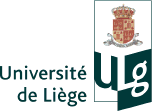International Conference
Probing Misunderstanding
University of Liège (Belgium), 2-3 July, 2015
_________________________________________________________
_________________________________________________________
La possibilité de ce mal (le malentendu, la mécompréhension, la méprise), ce serait à sa manière une chance.
Jacques Derrida, Papier machine
It would
seem that a variety of fields in the humanities are currently dealing with questions concerning the tension between universalism and relativism. In anthropology, the issue of how to make place for multiple ontologies was the issue debated at the last Conference of the AAA in Chicago, while in sociology, at least in Europe, a pressing topic is how to deal with the plurality of points of view and the sharing of values and norms without giving up universalism. If individual freedom is guaranteed by a plurality of norms and values, their incompatibility may lead to an array of tensions or conflicts. However, relationships between individuals, or between individuals and states, are not merely a matter of negotiation of values. Such a view would obfuscate the fact that many relationships are shaped by domination and institutionalized norms.
Today’s social world is increasingly characterized by social engineering structures aiming to ‘regulate’ exchanges between individuals, corporations, public bodies, etc. Novel mediation structures appear to crop up everywhere, with the deliberate purpose of harmonizing, softening and homogenizing heterogeneous social and significant universes. In practice, however, they more often than not impose an implicit hegemonic norm in the name of plurality, emancipation and well-being.
In light of this rapidly evolving general context, it is becoming increasingly important to address the issue of misunderstanding.
It can be argued that the possibility of misunderstanding is a crucial requirement for a non-pathological communication. As a matter of fact, the ambition to eradicate misunderstanding from every social and/or symbolic exchange generates pathologies in human communication systems, which may result in psychological, political, social or cultural violence. The refusal to allow for misunderstanding arises from a will to stem the proliferation of meaning, and this generally gives rise to violence and/or domination.
The issue of misunderstanding also raises questions concerning the legitimacy of discourses, about the possibility to ‘speak oneself’ in one’s own idiom, about the co-existence of multiple idioms, etc. Misunderstanding can be a relevant issue for many disciplines, from psychiatry to cultural anthropology, through sociology, cultural studies, international relations, development politics, etc. It can be addressed as a theoretical and epistemological question, but it has also very practical and directly political implications. How to function in spite of – or thanks to – misunderstanding? How to address it and make room for it? Are there places (e.g. prisons, hospitals or corporations) where a managerial pragmatics of ‘total communication’ radically excludes misunderstanding? And if this proves to be the case, which strategies can people develop in order to speak for themselves, (re)claim autonomy and (re)gain agency?
This conference seeks to examine the conditions for understanding in relation to the possibility of misunderstanding. Its goal is to identify various forms of misunderstanding, locations where it appears, processes that generate it as well as its political, scientific and social stakes. We also aim to examine how misunderstanding can become a source of political and social, cultural and artistic creativity, and how it may be used as a conceptual tool for analyzing a social world that pretends to encourage empowerment and self-expression.
Our scope is unambiguously multi-disciplinary. The conference programme will consist of keynote addresses as well as workshops on: Politics and institutions; Mediation structures; Cultural anthropology (esp. Local ecological knowledge); Cultural and Literary studies; Psychiatry.
_________________________________________________________
Paper proposals (300-400 words) should reach us by 15 January 2015. They are to be sent to: erik.spinoy@ulg.ac.be
All submitters will be notified by 15 March 2015 at the latest.
The full text of the call and a description of its axes are available here.
_________________________________________________________
Bénédicte de Villers (Ulg), Jérôme Englebert (Ulg), Eric Florence (Ulg), Christine Servais (Ulg), Véronique Servais (Ulg), Erik Spinoy (Ulg), Didier Vrancken (Ulg), Michel Dupuis (UCL)
Scientific committee
Bernard Darras (Paris 1) ; Bénédicte de Villers (Ulg) ; Christophe Dubois (Ulg – Lemme) Michel Dupuis (UCL) Jérôme Englebert (Ulg) ; Eric Florence (Ulg – Lemme) ; Philippe Hambye (UCL/Lemme) ; Yves Jeanneret (Paris Sorbonne – Celsa) ; Monique Jeudy- Ballini (CNRS) ; Marco Martiniello (Ulg – Cedem) ; Christine Servais (Ulg – Lemme) ; Véronique Servais (Ulg – Lemme) ; Erik Spinoy (Ulg – Lemme) ; Didier Vrancken (Ulg) ; Friedrich Stiefel (Lausanne) ; Thomas Heller (Lille 3 – Gerrico) ; Frans Van Peperstraten (Université de Tilburg) ; Yves Winkin (E.N.S. Lyon)
_________________________________________________________
Please feel free to contact Pr. Erik Spinoy if you need more information.
Le Lemme est un laboratoire de recherche, dont les membres sont issus des Départements des Arts et Sciences de la Communication, de Langue et littérature modernes et de Langues et littérature romanes de l’ULg, ainsi que de l’Institut des Sciences Humaines et Sociales et d’autres universités, belges ou étrangères. En savoir plus.
Les recherches menées au sein de l’Unité thématique de recherche sur les médias et la médiation (Lemme) ont pour vocation d’interroger, de manière théorique et empirique, les processus et dispositifs de médiation que constituent la production, la circulation et la réception des objets culturels et médiatiques dans un espace technologique, économique, symbolique, social et politique. En savoir plus.

